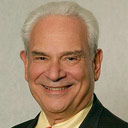Elkan Abramowitz
May 05, 2003 | New York Law Journal
White-Collar CrimeBy Elkan Abramowitz And Barry A. Bohrer
6 minute read
March 06, 2003 | New York Law Journal
White-Collar CrimeBy Elkan Abramowitz And Barry A. Bohrer
11 minute read
July 01, 2008 | Law.com
The U.S. Supreme Court: Money-Laundering DecisionsTwo recent rulings highlight the way in which the government has expanded the money-laundering laws to encompass actions already prohibited under other criminal statutes. The Supreme Court's decisions, narrowing certain provisions of the statute, send a signal that money-laundering prosecutions, and others, must stay within the confines of the statute that authorizes them.
By Elkan Abramowitz and Barry A. Bohrer
15 minute read

September 01, 2009 | New York Law Journal
White-Collar CrimeElkan Abramowitz and Barry A. Bohrer, members of Morvillo, Abramowitz, Grand, Iason, Anello & Bohrer, write that a defendant convicted of an economic crime may have the calculation of his advisory sentencing range increased depending on the amount of loss caused by the offense. However, a defendant is to be held liable only for those losses caused directly by the wrongful conduct for which he was convicted. Especially in the highly sophisticated and complex realm of securities law, calculating loss can be difficult. Recently, federal circuit courts have looked to, and in some instances adopted, the loss calculations methodologies employed in the civil context to determine the validity of a district court's loss calculation in the criminal context.
By Elkan Abramowitz and Barry A. Bohrer
12 minute read
January 03, 2006 | New York Law Journal
White-Collar CrimeElkan Abramowitz and Barry A. Bohrer, members of Morvillo, Abramowitz, Grand, Iason & Silberberg, write that the increasing complexity and far-flung nature of criminal and regulatory investigations, requiring representation of numerous organizations and individuals, continues to raise issues affecting the attorney-client relationship and the adversarial process.
By Elkan Abramowitz and Barry A. Bohrer
14 minute read

May 05, 2009 | New York Law Journal
White-Collar CrimeElkan Abramowitz and Barry A. Bohrer, members of Morvillo, Abramowitz, Grand, Iason, Anello & Bohrer, write that for decades, corporate counsel interviewing employees in the context of internal investigations typically advised the employees that the attorney represents the corporation, not the employee; any information imparted to the attorney is privileged, but the privilege is held by the corporation, not the employee; and the corporation, not the employee, determines whether to waive the privilege and share any information imparted by the employee with third parties. Two recent federal cases demonstrate that corporate counsel may need to expand the way they think about the delivery and purpose of these warnings.
By Elkan Abramowitz and Barry A. Bohrer
12 minute read

July 05, 2011 | New York Law Journal
Computer Fraud and Abuse Act: Finding the Line in the SandIn their White-Collar Crime column, Elkan Abramowitz and Barry A. Bohrer of Morvillo, Abramowitz, Grand, Iason, Anello & Bohrer write: The scope of the Computer Fraud and Abuse Act is the subject of an emerging split among federal courts of appeals as highlighted by a recent opinion by the Ninth Circuit, which rejected the claim that its decision would make criminals out of millions of employees who might utilize their work computers for personal use.
By Elkan Abramowitz and Barry A. Bohrer
14 minute read

September 07, 2004 | New York Law Journal
White-Collar CrimeElkan Abramowitz and Barry A. Bohrer, members of Morvillo, Abramowitz, Grand, Iason & Silberberg, cover why this past U.S. Supreme Court term marks significance for the white-collar practitioner.
By Elkan Abramowitz And Barry A. Bohrer
14 minute read

September 02, 2008 | New York Law Journal
White-Collar CrimeBy Elkan Abramowitz and Barry A. Bohrer
18 minute read
May 06, 2002 | New York Law Journal
White-Collar CrimeA s Enron and Arthur Andersen fight for survival after related, but independent, wrongdoing by high-level employees, questions abound regarding the extent to which the corporate culture in each instance encouraged or condoned employee wrongdoing and, ultimately, what went wrong with each company`s legal compliance programs.
By Elkan Abramowitz And Barry A. Bohrer
13 minute read
Trending Stories
- 1Courts, Lawyers Press On With Business as SoCal Wildfires Rage
- 2Florida, a Political Epicenter, Is the Site of Brownstein Hyatt's 13th Office
- 3Law Firms Close Southern California Offices Amid Devastating Wildfires
- 4Lawsuit alleges racial and gender discrimination led to an Air Force contractor's death at California airfield
- 5Holland & Knight Picks Up 8 Private Wealth Lawyers in Los Angeles
More from ALM
- Scan In Progress: Litigators Leverage AI to Screen Prospective Jurors 1 minute read
- Legal Speak at General Counsel Conference East 2024: Match Group's Katie Dugan & Herrick's Carol Goodman 1 minute read
- Legal Speak at General Counsel Conference East 2024: Eric Wall, Executive VP, Syllo 1 minute read



